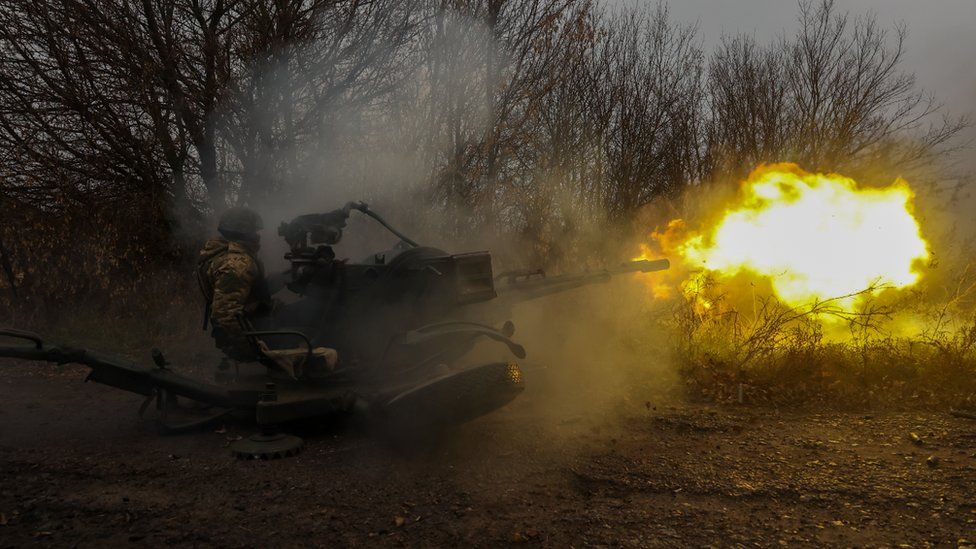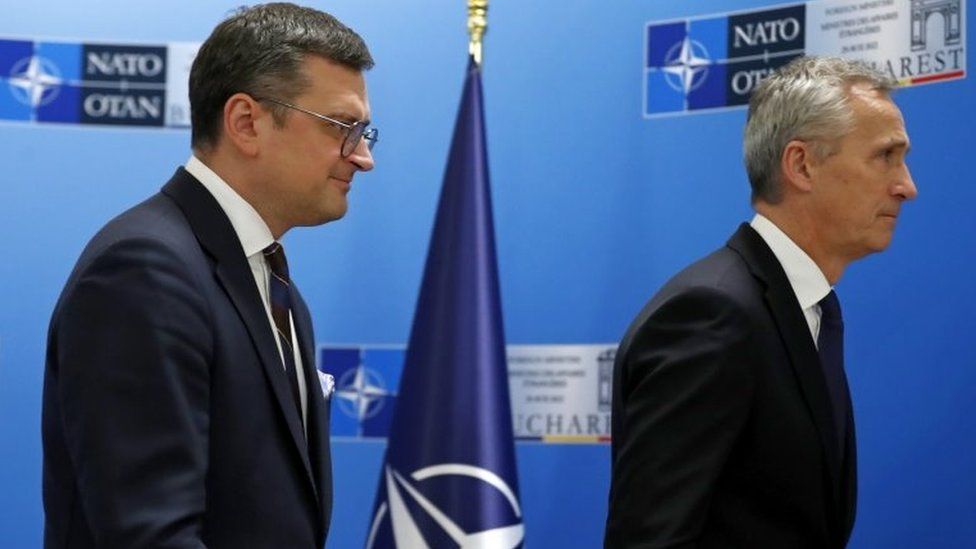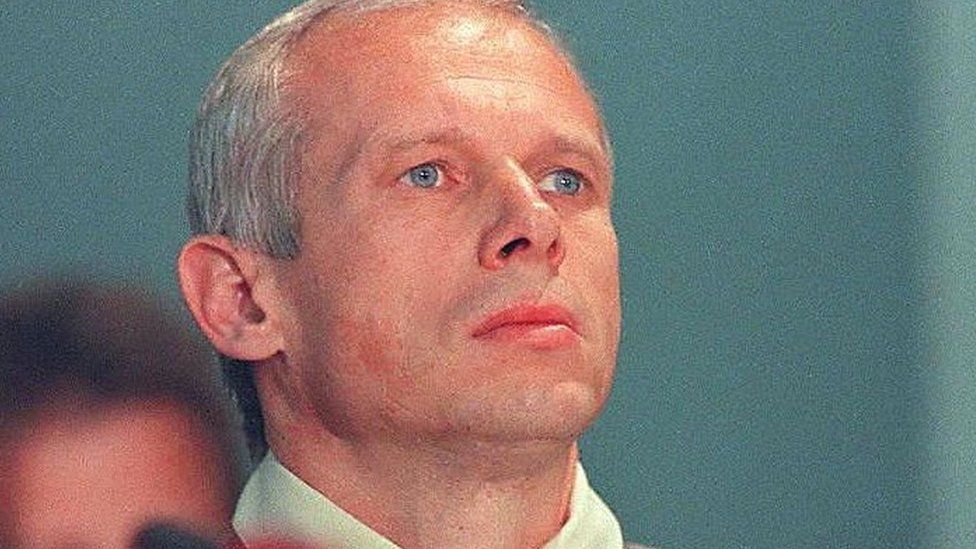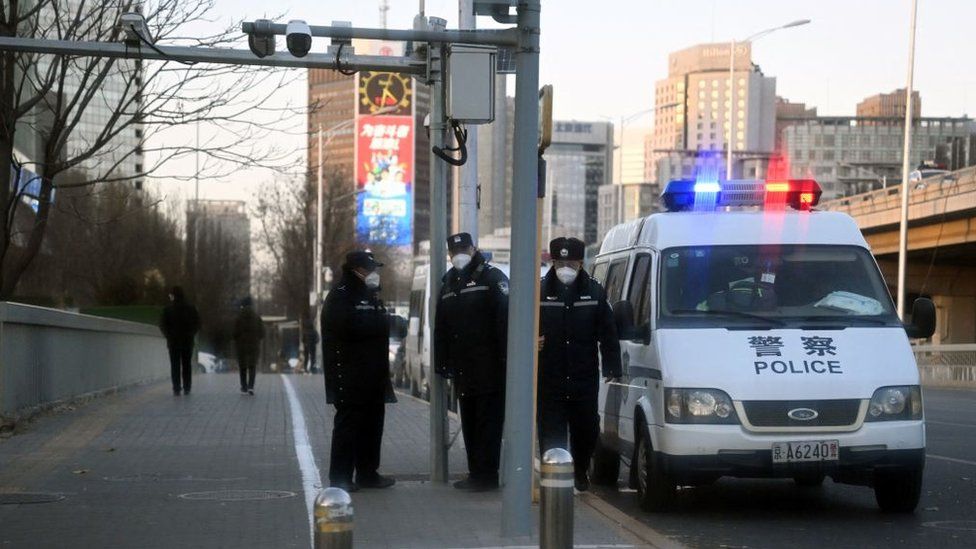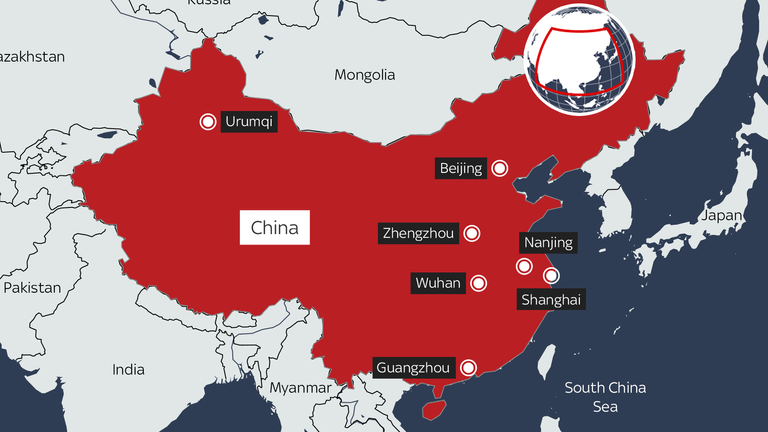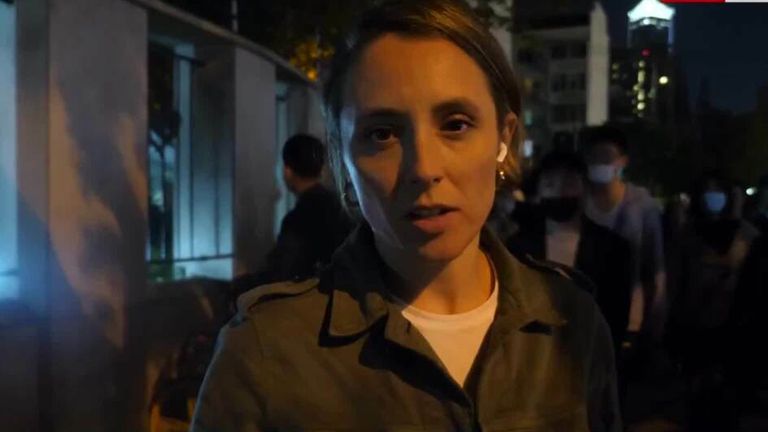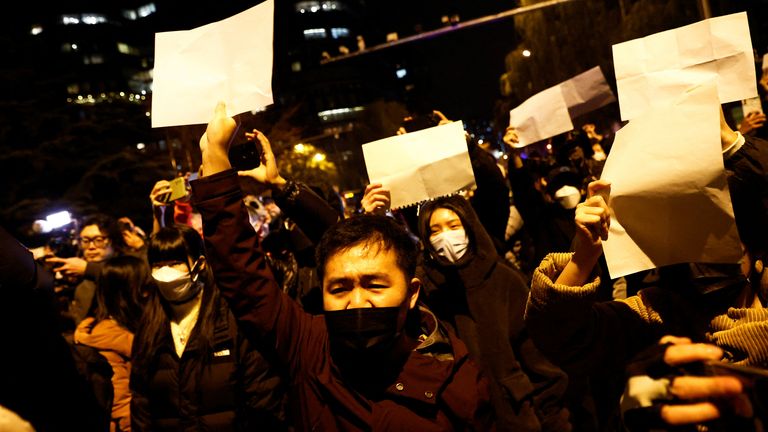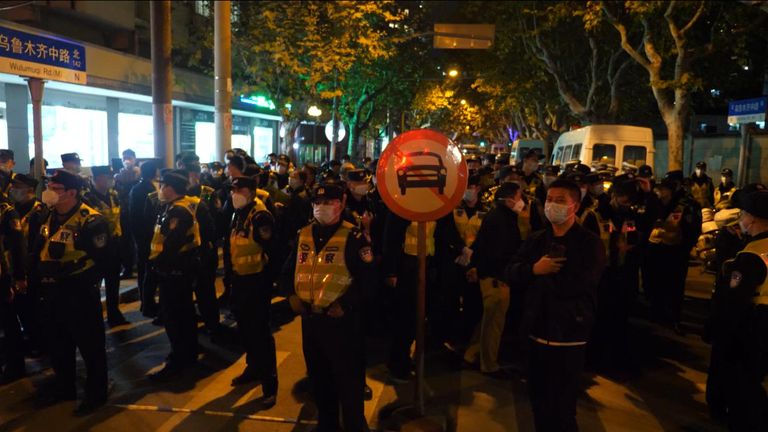
The leader of a far-right militia has been found guilty of plotting to stop US President Joe Biden from taking office after the 2020 election.
A jury found Oath Keepers founder Stewart Rhodes guilty of the rare charge of seditious conspiracy following a two-month trial.
He plotted an armed rebellion to stop the transfer of power from Donald Trump to Mr Biden, prosecutors said.
Four more were on trial with him related to the 2021 Capitol riots.
Three of the group - Jessica Watkins, Kelly Meggs and Kenneth Harrelson - went inside the building during the attack.
Meggs was also found guilty of seditious conspiracy on Tuesday. Both Rhodes and Meggs now face a maximum 20 year sentence on the charges.
Three of the group members - Harrelson, Watkins and Caldwell - were found not guilty of seditious conspiracy.
All five of the group members were found guilty of obstruction of an official proceeding.
Rhodes, who prosecutors say acted as a "battlefield general" during the riots, was also found guilty of tampering with documents or proceedings. He was acquitted of two other conspiracy counts.
Supporters of then-President Trump, a Republican, stormed Congress on 6 January 2021 in a bid to thwart certification of Joe Biden's White House election victory.
So far around 900 people in nearly all 50 states have been arrested for taking part in the riot.
The verdict comes after three full days of jury deliberation. The panel in Washington DC met once before taking a weekend break for the Thanksgiving holiday, before meeting for two more days this week.
This was the first conviction of seditious conspiracy since 1995, when 10 Islamist militants were convicted for trying to plant bombs at New York City landmarks.
The Civil War-era charge was first enacted to stop residents of southern states from fighting against the US government.
In order to be convicted of seditious conspiracy, prosecutors must prove that two or more people conspired to "overthrow, put down or to destroy by force" the US government, or that they planned to use force to oppose US authority.
Alan Rozenshtein, a law professor at the University of Minnesota and a former US Department of Justice lawyer, said the conviction of Rhodes is significant because it shows that a seditious conspiracy charge is "a viable and legal path for punishing the most serious anti-democratic conduct" in the country.
He added the mixed verdict proves that juries are able to apply the conviction responsibly.
The verdict is also a confidence boost for the justice department, Mr Rozenshtein said, in their quest to prosecute more people in relation to the Capitol riots.
Officials argued that Rhodes stashed dozens of weapons in a hotel room in Virginia, just across the Potomac River from Washington DC, and planned to bring them into the city in the event of mass civil disorder.
During the trial, defence lawyers said that the fact the weapons were never used - or even brought into the city - bolstered their argument that the Oath Keepers were on a purely defensive mission, intending to protect protesters and keep the peace inside and outside the Capitol.
Among the defendants, two are from Florida, one is from Ohio and one is from Virginia. Rhodes, the accused ringleader, is from Texas.
Another famous storming of the US Capitol led to successful seditious conspiracy convictions.
In 1954, four nationalists from the US island territory of Puerto Rico fired shots onto the floor of the House of Representatives, wounding several lawmakers.
The attackers, as well as more than a dozen other members of the group, were found guilty of seditious conspiracy.
The Oath Keepers were founded by Rhodes, a former US Army paratrooper and Yale-educated lawyer, and has sought to attract to current and former members of the US military and law enforcement.
Over the past decade, members have shown up at a number of protests and armed standoffs across the country.
More Oath Keepers members, along with members of another far-right group, the Proud Boys, will go on trial on seditious conspiracy charges later this year.
https://news.google.com/__i/rss/rd/articles/CBMiM2h0dHBzOi8vd3d3LmJiYy5jby51ay9uZXdzL3dvcmxkLXVzLWNhbmFkYS02MzgwMjY0OdIBN2h0dHBzOi8vd3d3LmJiYy5jby51ay9uZXdzL3dvcmxkLXVzLWNhbmFkYS02MzgwMjY0OS5hbXA?oc=5
2022-11-29 23:07:17Z
CBMiM2h0dHBzOi8vd3d3LmJiYy5jby51ay9uZXdzL3dvcmxkLXVzLWNhbmFkYS02MzgwMjY0OdIBN2h0dHBzOi8vd3d3LmJiYy5jby51ay9uZXdzL3dvcmxkLXVzLWNhbmFkYS02MzgwMjY0OS5hbXA
